Nursing students who have just earned their bachelor’s degrees may consider pursuing Master’s of Nurse Anesthesia degrees in order to get on the path to fulfilling careers as certified registered nurse anesthetists (CRNAs). Other possible degrees for this field include the Master of Science in Anesthesiology, the Master of Science in Biology with a nurse anesthesia track, and the Master of Science in Nursing with a specialization, concentration, or option in nurse anesthesia. If these programs sound appealing to you and you know you would like to work in this challenging yet rewarding field, you still have one big decision to make: where will you earn your degree? Keep in mind that nurse anesthesia programs are highly competitive, mainly due to the highly intensive didactic and clinical training, as well as costly. As you sort through the following most affordable Master’s of Nursing degrees below, make sure that the programs you are considering meet your state’s licensure requirements.
Featured Programs
Methodology
We developed this ranking in order to help students considering a career path as nurse anesthetists choose the most appropriate program and college or university to meet their professional goals. We based our rankings on information obtained from the National Center for Education Statistics (NCES) College Navigator database, U.S. News & World Report, and each school’s website. In order to find the best degree programs in this field, we conducted a search for Master’s in Nurse Anesthesia degree at the NCES and narrowed down our initial search results of 80 schools into the top 25 based on methodologies such as the average cost of tuition and national program rankings.
Average Cost of Attendance
As you start to look at graduate programs for your master’s degree in nurse anesthesia, you may find yourself comparing tuition rates first. Remember that cost is not the only factor on which you should base your decision, however; some of the more affordable degrees on this list are among the top-rated in the country. Ultimately, you want to choose a program that meets your professional and academic goals without draining your wallet. Although we took the liberty of including both in- and out-of-state tuition rates for each school on this list, we awarded points based on the average cost of the two rates. In addition, all 25 schools are under $35,000 for the cost of the full graduate program.
Points:
Under $15,000: 3 points
$15,001 to $25,000: 2 points
$25,001 or more: 1 point
College Ranking
Students considering pursuing an MS in Nurse Anesthesia or other similar degrees should also be aware of how the programs they are researching compare to others across the country. Resources such as U.S. News & World Report and other ranking agencies take the liberty of doing the difficult work for you, listing schools nationwide across countless categories based on their location and quality of their programs and schools. For the purpose of this article, we awarded points based on each school’s ranking in the “Best Nursing-Anesthesia (CRNA) Schools” category as follows.
Points:
U.S. News & World Report: Best Nursing-Anesthesia (CRNA) Schools Ranking
Top 10: 5 points
Top 25: 4 points
Top 50: 3 points
Top 75: 2 points
Top 100: 1 point
Ranking Top 25 Most Affordable Master’s of Nurse Anesthesia Degrees
25. University of New England
Biddeford, Maine

Points: 3
Program Website
Located in Biddeford, Maine, the University of New England is a private university that enrolls nearly 14,000 students in its undergraduate and graduate degree programs. The school confers the only MS in Nurse Anesthesia program in northern New England, and students are positioned to succeed in a range of different clinical settings. The 27-month affordable Nurse Anesthesia program is organized into two phases, the first of which is conducted on-campus in Portland and includes eight months of classroom study. Students then complete the 19-month hospital-based phase of the curriculum which is supplemented by seminars and lectures. Graduates of this low cost master’s degree program are eligible to sit for the national certifying examination.
Degree Options:
M.S. in Nurse Anesthesia (MSNA)
Average Program Cost: $18,088
In-State Tuition: $18,088
Out-of-State Tuition: $18,088
U.S. News & World Report Ranking:
#88 (tie) in Best Nursing-Anesthesia (CRNA) Schools
24. University of South Florida
Tampa, Florida
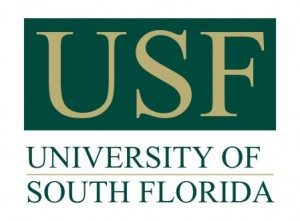
Points: 5
Program Website
Founded in 1956, the University of South Florida is the fourth-largest public university in the state and a member institution of the State University System of Florida. Students may pursue an affordable MS in Nurse Anesthesia that consists of 72 hours of coursework past the bachelor’s degree. The low cost master’s program is composed of a 12-month didactic phase and a 16-month clinical phase. Coursework covers the practices and principles in all applications of anesthesia and includes classes in physiology, pharmacology, pathophysiology, anatomy, chemistry, biology, and physics. During certain rotations within the clinical phase of the program, nights, weekends, and 24-hour rotations will be expected.
Degree Options:
M.S. in Nurse Anesthesia
Average Program Cost: $15,777
In-State Tuition: $10,428
Out-of-State Tuition: $21,126
U.S. News & World Report Ranking:
#94 in in Best Nursing-Anesthesia (CRNA) Schools
23. Saint Vincent College
Latrobe, Pennsylvania

Points: 3
Program Website
Located in Latrobe, Pennsylvania, Saint Vincent College is a four-year Benedictine liberal arts college and the first Benedictine monastery in the U.S. The school’s affordable Master’s in Health Science degree in nurse anesthesia is in the process of undergoing a transition from the current 27-month master’s program to a 36-month Doctor of Nurse Anesthesia Practice (DNAP) program to begin in January 2020. Students work closely with faculty and CRNAs to develop their skills, and the school provides 23 clinical sites for hands-on training, ranging from large trauma hospitals to small community facilities. In addition to completing coursework in anesthesia, anatomy, pathophysiology, physiology, biochemistry, and pharmacology, students are required to perform 550 total cases in order to graduate.
Degree Options:
Master of Health Science Degree in Nurse Anesthesia
Average Program Cost: $13,078
In-State Tuition: $13,078
Out-of-State Tuition: $13,078
U.S. News & World Report Ranking:
N/A
22. Barnes-Jewish College Goldfarb School of Nursing
St. Louis, Missouri
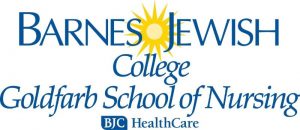
Points: 3
Program Website
Founded in 1902 as Jewish Hospital School of Nursing, the Goldfarb School of Nursing at Barnes-Jewish College is a college of nursing in St. Louis, Missouri. The school confers an affordable MS in Nursing with a concentration in nurse anesthesia, but this program will end following the introduction of a new Doctor of Nursing Practice (DNP) with a concentration in nurse anesthesia in January 2020. Much of the 36-month program will remain the same, with added requirements by the Council on Accreditation of Nurse Anesthesia Educational Programs (COA). Throughout core coursework and comprehensive clinical training, graduate students prepare to become advanced practice nurses delivering the full scope of anesthesia science in critical care settings.
Degree Options:
Master of Science in Nursing – Nurse Anesthesia
Average Program Cost: $9,558
In-State Tuition: $9,558
Out-of-State Tuition: $9,558
U.S. News & World Report Ranking:
N/A
21. Arkansas State University
Jonesboro, Arkansas

Points: 3
Program Website
Founded in 1909, Arkansas State University in Jonesboro, Arkansas is the flagship campus of the Arkansas State University System and the second-largest university by enrollment. The school confers an affordable MS in Nursing in Nurse Anesthesia, and graduates are eligible to take the national certification examination after completing the program. The integrated clinical didactic program combines clinical anesthesia and academic courses taught at ASU, with many clinical sites available throughout the region. Students may complete the 88-credit-hour program in 28 months, and those considering pursuing a master’s degree after January 1, 2022 must instead enroll in a doctoral degree based on the requirements set by the Council on Accreditation of Nurse Anesthesia Educational Programs (COA).
Degree Options:
Master of Science in Nursing in Nurse Anesthesia
Average Program Cost: $8,524
In-State Tuition: $6,121
Out-of-State Tuition: $10,927
U.S. News & World Report Ranking:
N/A
20. Albany Medical College
Albany, New York

Points: 4
Program Website
Founded in 1839, Albany Medical College in Albany, New York is one of the oldest medical schools in the country. The school provides an affordable MS in Nurse Anesthesiology degree in which students participate in practicum and didactic components of the program, assume leadership roles in the profession, and undertake independent study. During the first year, students complete courses in the basic sciences, nurse anesthesia practice, research, and clinical practicum laboratories. The second year involves continuing the clinical practicum laboratories and nurse anesthesia courses as well as completing board preparation coursework and a clinical residency.
Degree Options:
Master of Science in Nurse Anesthesiology
Average Program Cost: $25,897
In-State Tuition: $25,897
Out-of-State Tuition: $25,897
U.S. News & World Report Ranking:
#36 (tie) in Best Nursing-Anesthesia (CRNA) Schools
19. Removed by editor
18. University of Tennessee at Knoxville
Knoxville, Tennessee
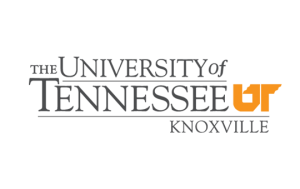
Points: 4
Program Website
Founded in 1794, two years before Tennessee became the 16th state, the University of Tennessee is the flagship campus of the University of Tennessee System. Through the Department of Anesthesiology in the Graduate School of Medicine, students may earn an affordable MS in Nursing with a concentration in nurse anesthesia. This 31-month low cost master’s program prepares students to sit for the national certification examination, and graduates are typically employed within six months of earning their degree. According to Council on Accreditation of Nurse Anesthesia Educational Programs (COA) requirements, UT Knoxville will begin to phase out the MSN and transition into a Doctor of Nursing Practice (DNP) degree in May 2019.
Degree Options:
Master of Science in Nursing (MSN) With a Concentration in Nurse Anesthesia
Average Program Cost: $22,178
In-State Tuition: $13,084
Out-of-State Tuition: $31,272
U.S. News & World Report Ranking:
#51 (tie) in Best Nursing-Anesthesia (CRNA) Schools
17. University of South Carolina
Columbia, South Carolina

Points: 4
Program Website
The University of South Carolina, located in Columbia, South Carolina is the flagship institution of the University of South Carolina System and offers more than 350 programs of study. Within the School of Medicine, students may pursue an affordable graduate program in nurse anesthesia. This 27-month inexpensive program focuses on the integration of simulation, clinical experience, and didactics with a deep understanding of the mechanics of anesthesia and a broad base in the health sciences. The integrated clinical-focused curriculum puts graduate students in hospital settings eight hours per week as early as the first month of the program. USC is currently working toward transitioning the program to a doctoral degree to comply with the Council on Accreditation’s requirement.
Degree Options:
Master of Nurse Anesthesia
Average Program Cost: $20,811
In-State Tuition: $13,254
Out-of-State Tuition: $28,368
U.S. News & World Report Ranking:
#65 (tie) in Best Nursing-Anesthesia (CRNA) Schools
16. Oregon Health & Science University
Portland, Oregon

Points: 4
Program Website
Founded in 1887 as the University of Oregon Medical Department, Oregon Health & Science University is a public university in Oregon that operates a main campus in Portland as well as two hospitals. Although the school offers an affordable master’s degree in nurse anesthesia, it is transitioning the program into a Doctor of Nursing Practice (DNP) degree. This 36-month low cost program provides nurse anesthesia students with a solid foundation in professional accountability, clinical skills, and scientific knowledge. The curriculum is rigorous and clinically focused, with the first year consisting of courses in basic anesthesia science and weekly labs, the second year incorporating clinical rotations, and the third year involving a clinical immersion.
Degree Options:
Nurse Anesthesia Program
Average Program Cost: $20,412
In-State Tuition: $20,412
Out-of-State Tuition: $20,412
U.S. News & World Report Ranking:
#51 (tie) in Best Nursing-Anesthesia (CRNA) Schools
15. Florida Gulf Coast University
Fort Myers, Florida

Points:
Program Website
Founded in 1991, Florida Gulf Coast University in Fort Myers, Florida enrolls more than 14,000 students in its five colleges and schools. Although FGCU had previously offered a Master of Science in Nursing, it is now transitioning into the affordable Bachelor of Science in Nursing (BSN)-Doctor of Nursing Practice (DNP) Nurse Anesthesiology program in 2020. The curriculum will include coursework in pharmacology, chemistry and physics in anesthesia, pathophysiology, physiology, and anatomy as well as clinical practice that provides hands-on experiential learning opportunities. Students in this program must meet specific graduation, clinical, progression requirements in order to earn their degree.
Degree Options:
Nurse Anesthesia (M.S.N.)
Average Program Cost: $19,559
In-State Tuition: $8,961
Out-of-State Tuition: $30,157
U.S. News & World Report Ranking:
#51 (tie) in Best Nursing-Anesthesia (CRNA) Schools
14. Samford University
Birmingham, Alabama

Points: 4
Program Website
Founded in 1841 as Howard College, Samford University is a Christian university now located in Birmingham, Alabama. Although the school previously offered a master’s degree in nurse anesthesia, the Ida Moffett School of Nursing now confers an affordable Doctor of Nursing Practice (DNP) program that consists of 94 credits of study. The front-loaded didactic curriculum includes both nurse anesthesia practice knowledge as well as graduate nursing core knowledge, and the program culminates with a clinical practicum in which students gain the opportunity to apply what they have learned in the nurse anesthetist role. Students can earn their degree within 36 months, and they are prepared to sit for the nurse anesthesia national certification examination upon graduation.
Degree Options:
Doctor of Nursing Practice
Average Program Cost: $19,058
In-State Tuition: $19,058
Out-of-State Tuition: $19,058
U.S. News & World Report Ranking:
#51 (tie) in Best Nursing-Anesthesia (CRNA) Schools
13. University of Tennessee at Chattanooga
Chattanooga, Tennessee

Points: 4
Program Website
Located in Chattanooga, Tennessee, the University of Tennessee at Chattanooga is a public university that enrolls more than 11,000 undergraduate and graduate students each year. Through the School of Nursing, students may pursue an affordable Master of Science in Nursing, a 27-month program that consists of rigorous coursework and prepares students for the national certification examination. Graduate students take courses in anatomy, physiology, integrated health sciences, principles of nurse anesthesia, and pharmacology, and they benefit from the school’s partnership with the North Mississippi Medical Center in Tulepo, Mississippi. The school plans to transition from a master’s in nurse anesthesia program to a doctorate in January 2021 in accordance with the Council on Accreditation of Nurse Anesthesia Educational Programs (COA).
Degree Options:
MSN in Nurse Anesthesia
Average Program Cost: $18,079
In-State Tuition: $10,020
Out-of-State Tuition: $26,138
U.S. News & World Report Ranking:
#51 (tie) in Best Nursing-Anesthesia (CRNA) Schools
12. Bloomsburg University of Pennsylvania
Bloomsburg, Pennsylvania
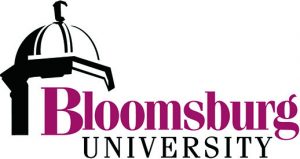
Points: 4
Program Website
The Bloomsburg University of Pennsylvania is a comprehensive public university located in Bloomsburg, Pennsylvania that enrolls nearly 10,000 undergraduate and graduate students each year. The school provides an affordable MSN in Nurse Anesthesia program that is designed to prepare students for leadership and instructional roles. The curriculum provides a higher level of practical experience and scientific background in anesthesia, and graduates are prepared to sit for the national certification exam for nurse anesthetists. According to Bloomsburg, 100 percent of its graduates are employed within six months of completing the program.
Degree Options:
Nurse Anesthesia (M.S.N.)
Average Program Cost: $17,654
In-State Tuition: $14,654
Out-of-State Tuition: $20,654
U.S. News & World Report Ranking:
#65 (tie) in Best Nursing-Anesthesia (CRNA) Schools
11. Texas Wesleyan University
Fort Worth, Texas

Points: 4
Program Website
Founded in 1890 by the Methodist Episcopal Church, Texas Wesleyan University is a private, liberal arts university located in Fort Worth, Texas. Within the School of Health Professions, students may pursue an affordable MS in Nurse Anesthesia that features 20 primary clinical sites in nine states. Students take courses in anesthesia, physiology and pathophysiology, advanced pharmacology, anatomy, and physics. Faculty members are expert professors who communicate directly with students rather than through teachers’ assistants, and 100 percent of the low cost program’s graduates are employed within six months of passing the national certification examination.
Degree Options:
Master of Science in Nurse Anesthesia
Average Program Cost: $17,282
In-State Tuition: $17,282
Out-of-State Tuition: $17,282
U.S. News & World Report Ranking:
#74 (tie) in Best Nursing-Anesthesia (CRNA) Schools
10. Central Connecticut State University
New Britain, Connecticut

Points: 4
Program Website
Central Connecticut State University, located about 11 miles southwest of Hartford, Connecticut in New Britain, offers undergraduate and graduate degrees across five colleges and schools. Offered by the Biology Department, the school’s affordable MS in Biological Sciences with a concentration in anesthesia is a 17-month program designed for licensed registered nurses (RNs) and includes 31 credits of study as well as 1,000 hours of clinical practicum experiences. Coursework includes areas such as immunology, advanced biology, anesthesia, basic organic and biological chemistry, pharmacology, physiology, anatomy, pathophysiology, and neuroscience.
Degree Options:
Biological Sciences: Anesthesia, M.S.
Average Program Cost: $17,065
In-State Tuition: $11,392
Out-of-State Tuition: $22,737
U.S. News & World Report Ranking:
#51 (tie) in Best Nursing-Anesthesia (CRNA) Schools
9. Lourdes University
Sylvania, Ohio
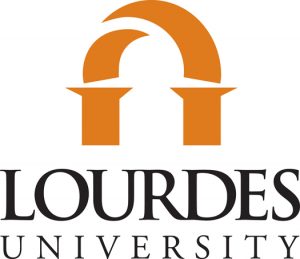
Points: 4
Program Website
Established in 1958, Lourdes University is a private Franciscan university in Sylvania, Ohio and sponsored by the Sisters of St. Francis of Sylvania. LU confers an affordable MS in Nurse Anesthesia degree that consists of 28 months of continuous coursework, including a clinical practicum and didactic coursework. Students must complete 64 credits of study to graduate, and classes cover critical areas of the field such as physiology, pathophysiology, and anatomy as well as advanced and basic principles of anesthesia, chemistry and physics, and advanced physical health assessments. As of May 2020, LU will transition from a master’s degree to a Doctor of Nursing Practice (DNP) in accordance with the Council on Accreditation of Nurse Anesthesia Educational Programs (COA).
Degree Options:
MSN: Nurse Anesthesia Program (NAP)
Average Program Cost: $12,140
In-State Tuition: $12,140
Out-of-State Tuition: $12,140
U.S. News & World Report Ranking:
#81 (tie) in Best Nursing-Anesthesia (CRNA) Schools
8. University of Akron
Akron, Ohio

Points: 4
Program Website
The University of Akron is a STEM-focused public research university in Akron, Ohio and a member of the University System of Ohio. The school confers an affordable MSN with a specialization in nurse anesthesia that is designed to prepare graduates to become certified registered nurse anesthetists (CRNAs). Students must complete 62 credit hours of coursework which include core graduate nursing courses, chemistry, advanced physiology and pathophysiology, principles of anesthesiology, basic and advanced pharmacology, and physics. The 27-month low cost master’s degree program also includes a 24-month residence that allows students to gain clinical practical experience.
Degree Options:
Master of Science in Nursing
Average Program Cost: $11,889
In-State Tuition: $9,136
Out-of-State Tuition: $14,642
U.S. News & World Report Ranking:
#81 (tie) in Best Nursing-Anesthesia (CRNA) Schools
7. Boston College
Chestnut Hill, Massachusetts

Points: 5
Program Website
Enrolling more than 14,000 undergraduate and graduate students, Boston College is a private Jesuit research university in Chestnut Hill, Massachusetts. Through BC’s Connell School of Nursing, students may pursue a full-time, 27-month affordable master’s degree in nurse anesthesia in which they gain hands-on clinical experience, learn advanced pharmacologic and physiologic principles, and take advantage of the core courses common to all Master of Science nursing specialties. After completing the 70-credit curriculum, students are eligible to sit for the national certification examination and, according to BC, 100 percent of its graduates pass the test.
Degree Options:
Nurse Anesthesia (CRNA)
Average Program Cost: $28,296
In-State Tuition: $28,296
Out-of-State Tuition: $28,296
U.S. News & World Report Ranking:
#22 (tie) in Best Nursing-Anesthesia (CRNA) Schools
6. University of Scranton
Scranton, Pennsylvania

Points: 5
Program Website
Founded in 1888, the University of Scranton is a private Catholic and Jesuit research university located in Scranton, Pennsylvania. The school’s Panuska College of Professional Studies confers an affordable master’s degree in nurse anesthesia, a rigorous, full-time, comprehensive program that prepares registered nurses to become certified registered nurse anesthetists (CRNAs). The 68-credit-hour low cost master’s degree program runs for 28 months and combines clinical practicum experiences with didactic instruction. Students who already hold an MSN degree can complete a 56-credit-hour post-master’s certificate in the same amount of time. Courses include topics in ethics, anesthesia, chemistry and physics, anatomy, and advanced physiology, pathophysiology, and pharmacology.
Degree Options:
Nurse Anesthesia, MSN
Average Program Cost: $11,630
In-State Tuition: $11,630
Out-of-State Tuition: $11,630
U.S. News & World Report Ranking:
#65 (tie) in Best Nursing-Anesthesia (CRNA) Schools
5. University of Detroit Mercy
Detroit, Michigan
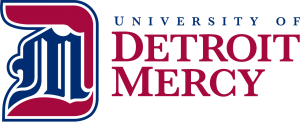
Points: 6
Program Website
Located in Detroit, Michigan, the University of Detroit Mercy is a private, coeducational university and the largest Roman Catholic institution of higher education in the state. The College of Health Professions & McAuley School of Nursing confers an affordable MSN degree with an anesthesia concentration. One of the top-ranked programs of its kind in the country, the curriculum integrates in-class participation with online learning. Courses include pharmacology, principles of nurse anesthesia, physiology, and anatomy. Students must also complete clinical internships before graduating. According to the school, 100 percent of its graduates are employed within six months of earning their degree.
Degree Options:
Master of Science in Nursing, Nurse Anesthesiology (CRNA)
Average Program Cost: $28,422
In-State Tuition: $28,422
Out-of-State Tuition: $28,422
U.S. News & World Report Ranking:
#10 (tie) in Best Nursing-Anesthesia (CRNA) Schools
4. Northeastern University
Boston, Massachusetts

Points: 6
Program Website
Established in 1898, Northeastern University is a private research university in Boston, Massachusetts that offers undergraduate and graduate programs to more than 25,000 students. The Bouve College of Health Sciences provides an affordable Master of Science in Nurse Anesthesia program that prepares nurses with the specialized skills needed to administer anesthesia. Clinical work begins after eight months of study, and students can choose from six practicum sites. Students may complete the program in three years. Nurses who already hold a Master’s in Nursing can complete the 33-credit-hour CAGS certificate program with a concentration in nurse anesthesia.
Degree Options:
Master of Science in Nurse Anesthesia
Average Program Cost: $23,408
In-State Tuition: $23,408
Out-of-State Tuition: $23,408
U.S. News & World Report Ranking:
#22 in Best Nursing-Anesthesia (CRNA) Schools
3. University of North Carolina-Charlotte
Charlotte, North Carolina
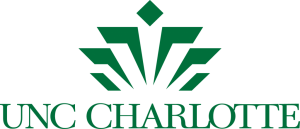
Points: 6
Program Website
The University of North Carolina at Charlotte is a public research university in Charlotte, North Carolina that offers undergraduate and graduate programs through nine colleges to nearly 30,000 students. The UNC Charlotte School of Nursing, together with Carolinas Medical Center, offers an affordable MSN with a specialty concentration in nurse anesthesia that can be completed in 27 months of full-time study. In addition to taking core courses, students complete clinical and cognate courses in nurse anesthesia. Clinical experiences are offered at Carolinas Medical Center and other approved sites, and graduates of this inexpensive master’s degree program are eligible to take the national certifying examination after completing the program.
Degree Options:
Master of Science in Nursing – Nurse Anesthesia
Average Program Cost: $14,074
In-State Tuition: $7,357
Out-of-State Tuition: $20,791
U.S. News & World Report Ranking:
#36 (tie) in Best Nursing-Anesthesia (CRNA) Schools
2. Newman University
Wichita, Kansas

Points: 6
Program Website
Founded in 1933 by the Adorers of the Blood of Christ, Newman University is a private, Catholic, liberal arts university in Wichita, Kansas approximately 162 miles north of Oklahoma City, Oklahoma. Graduate students may pursue an affordable Master of Nurse Anesthesia degree, one of only two in Kansas, that can be completed in 24 months of full-time study. The curriculum consists of 60 credits of study, and students spend 50 hours per week in clinical and classroom components. Courses cover topics such as anesthesia, chemistry and physics, pathophysiology, advanced physical assessment, and pharmacology, and students are required to complete 2,400 clinical clock hours to graduate.
Degree Options:
Master of Science in Nurse Anesthesia (MSNA)
Average Program Cost: $10,298
In-State Tuition: $10,298
Out-of-State Tuition: $10,298
U.S. News & World Report Ranking:
#43 in Best Nursing-Anesthesia (CRNA) Schools
1. Saint Mary’s University of Minnesota
Winona, Minnesota

Points: 7
Program Website
Founded in 1912, Saint Mary’s University of Minnesota, sometimes referred to as SMOO or SMU, is a coeducational, comprehensive, private university with an undergraduate campus located in the city of Winona, Minnesota. Together with the Minneapolis School of Anesthesia, SMU previously offered a 28-month, 48-semester-credit affordable MS in Nurse Anesthesia, but the program is currently in the phase-out process and will become a Doctor of Nursing Practice (DNP) in May 2020. Areas of study include pharmacology, physiology, pathophysiology, chemistry, and physics, and students are eligible to sit for the national certification examination to become certified registered nurse anesthetists (CRNAs) upon graduation.
Degree Options:
M.S. in Nurse Anesthesia
Average Program Cost: $8,550
In-State Tuition: $8,550
Out-of-State Tuition: $8,550
U.S. News & World Report Ranking:
#22 in Best Nursing-Anesthesia (CRNA) Schools
Frequently Asked Questions
What are the Career Options for a Master’s in Nurse Anesthesia Degree?
Certified registered nurse anesthetists (CRNAs) are advanced practice nurses who provide more than 40 million anesthetics for trauma, obstetrical, and surgical care every year in the U.S. They work in every type of practice setting, administer every type of anesthetic, and provide care for every type of procedure or operation — from pain management programs to open-heart surgery. As advanced practice registered nurses (APRNs), they often command a high degree of professional respect and autonomy.
Nurse anesthetists work in many settings, including delivery rooms, dental offices, pain clinics, surgery centers, and hospital operating rooms. Nurse anesthetists work closely with other qualified healthcare professionals such as dentists, podiatrists, obstetricians, surgeons, and anesthesiologists. They are responsible for all anesthesia-related patient care, including:
- Performing a physical assessment prior to administering anesthesia
- Participating in teaching prior to the operation
- Preparing themselves, their patients, and their environments for anesthetic management
- Properly administering anesthesia to keep the patient free of pain
- Intraoperatively maintaining the appropriate amount of anesthesia
- Evaluating patients following the procedure
- Overseeing recovery from anesthesia
- Following up with post-anesthesia care from the recovery room to the patient care unit
How Much Can You Earn in This Field?
In essence, CRNAs are trained nurses that administer anesthetics. The delivery of anesthesia is a potentially dangerous and critical procedure that requires a graduate degree and specialized training. Given the advanced educational requirements and the high level of responsibility, CRNAs are some of the highest-paid advanced practice registered nurses in the country. According to the U.S. Bureau of Labor Statistics, nurse anesthetists earned an average salary of $169,450 in May 2017. The highest 10 percent earned more than $208,000 per year, while the lowest 10 percent earned less than $110,520 per year.
The industries in which nurse anesthetists earned the highest salaries include:
- Outpatient care centers: $194,440
- General medical and surgical hospitals: $184,590
- Specialty (except substance abuse and psychiatric) hospitals: $178,920
- Federal Executive Branch (OES designation): $168,580
- Physicians’ offices: $162,430
- Offices of other health practitioners: $159,230
- Professional schools, universities, and colleges: $148,210
The BLS groups nurse anesthetists, nurse midwives, and nurse practitioners together for the purpose of reporting some of its data. Overall employment of this category of professionals is projected to grow 31 percent from 2016 to 2026, much faster than the average for all occupations. Growth is anticipated to be due to a rise in the demand for healthcare services, which may be caused by an increasing need for healthcare services from the aging population and an increased emphasis on preventive care.
Do You Need a Master’s Degree in Nursing to Become a Nurse Anesthetist?
In short, yes. However, although one must hold at least a Master of Science in Nursing (MSN) degree, anesthesia programs across the country face a deadline to change into a Doctor of Nurse Anesthesia Practice (DNAP) or Doctor of Nursing Practice (DNP). Therefore, beginning in 2019, schools are transitioning their master’s programs into doctorates in accordance with the Council on Accreditation of Nurse Anesthesia Educational Programs (COA) due to a policy requirement by the American Association of Nurse Anesthetists (AANA), the association representing CRNAs. Because of this change that goes into effect in 2025, all schools will need to have students enrolled in a DNP-accredited program by January 2022.
To become a nurse anesthetist, you must first earn a Bachelor of Science degree, become a registered nurse (RN), and attain at least one year of experience in an acute care setting. Next, you need to apply to and be accepted by an accredited nurse anesthesia program. Although program requirements vary depending on the school, most range in length from two to three years. The classroom curriculum emphasizes pharmacology, physics, chemistry, biochemistry, pathophysiology, physiology, and anatomy. All programs include clinical training in large community or university-based hospitals. According to the American Association of Nurse Anesthetists, the average student nurse must complete 2,500 clinical hours and administer 850 anesthetics before he or she is eligible to sit for certification.
After graduation, students take a national certification exam, which they must pass in order to seek employment. CRNAs are also required to continue their education by taking at least 40 hours of approved continuing education courses every two years, maintaining their state licensure, and documenting their practice.
What Else Should You Look for in a CRNA School?
First, when deciding on a potential CRNA school from which to earn a degree, confirm that the institution is accredited. Accreditation ensures that the program meets certain standards for educational quality set by the accrediting agency. The most prominent and common accrediting organization in this field is the Council on Accreditation of Nurse Anesthesia Educational Programs (COA).
Next, it is important to verify the type of CRNA degree offered. Does the school of a Master of Science in Nursing with a specialization in anesthesiology, a Master of Science in Anesthesiology, a Master of Science in Biology with an anesthesiology track, or a Doctorate in Nurse Anesthesia such as a DNAP or DNP? Depending on when you intend to graduate, you might need a doctoral-level program to become a CRNA due to the potential for the minimum degree requirement change.
Finally, look at the program’s requirements as far as clinical training sites. All CRNA schools require hands-on fieldwork to fulfill the experiential learning component of the curriculum. If you have an interest in a particular region or place of employment, find out where the training takes place for the program you are considering. According to the American Association of Nurse Anesthetists, clinical training is usually offered in healthcare facilities affiliated with universities or in large community hospitals. If everything else across the programs you are considering is equal such as tuition, type of degree, and accreditation, the more advanced and respected the clinical site, the better your clinical training and, ultimately, your experience will be.
Nurse anesthetists are highly trained medical professionals that work with anesthesiologists and surgeons to administer anesthesia and monitor patients during surgical procedures. While it is a rewarding career, it is also one that requires a significant commitment to education and training. If you have the drive, dedication, and desire, our list of the top 25 most affordable Master’s of Nursing degrees can get you on the right path to finding a program that meets your professional goals without breaking the bank.
AS Staff
This concludes our ranking of the Top 25 Most Affordable Master’s of Nurse Anesthesia Degrees.
Related Articles:
- What are the Different Types of Nursing Degrees?
- What is the Difference Between a Physician’s Assistant Degree and Doctor of Nursing Practice?
- How Long Does it Take to Complete an RN to BSN Online Program?
- What is the Difference Between an RN with a Bachelor’s Degree and an RN with an Associate’s Degree?
- How Hard is it to Get Into Nursing School?
- What You Need to Know About Nursing School Accreditations
- What High School Courses Should I Take If I Plan to Pursue a Bachelor’s Degree in Nursing?
Other Rankings of Interest:
- 25 Best Affordable Online Doctor of Nursing Practice Degree Programs(DNP)
- 25 Best Affordable Master’s of Nursing Online Degrees
- 25 Best Affordable Master’s of Nursing Education Online Degrees
- 20 Best Affordable Colleges for RN-BSN Online
- 25 Most Affordable Online Master’s of Healthcare Administration and Management Degrees
- 25 Best Affordable Master’s in Public Health Online Degrees
- 20 Best Affordable Healthcare Administration and Management Online Degree Programs
- 25 Top Value Health Care Administration/ Management Online Degrees (Bachelor’s)
- 15 Best Affordable Healthcare Management Degrees Programs (Bachelor’s)

 The Best Colleges
The Best Colleges The Lowest Costs
The Lowest Costs The Highest Returns
The Highest Returns